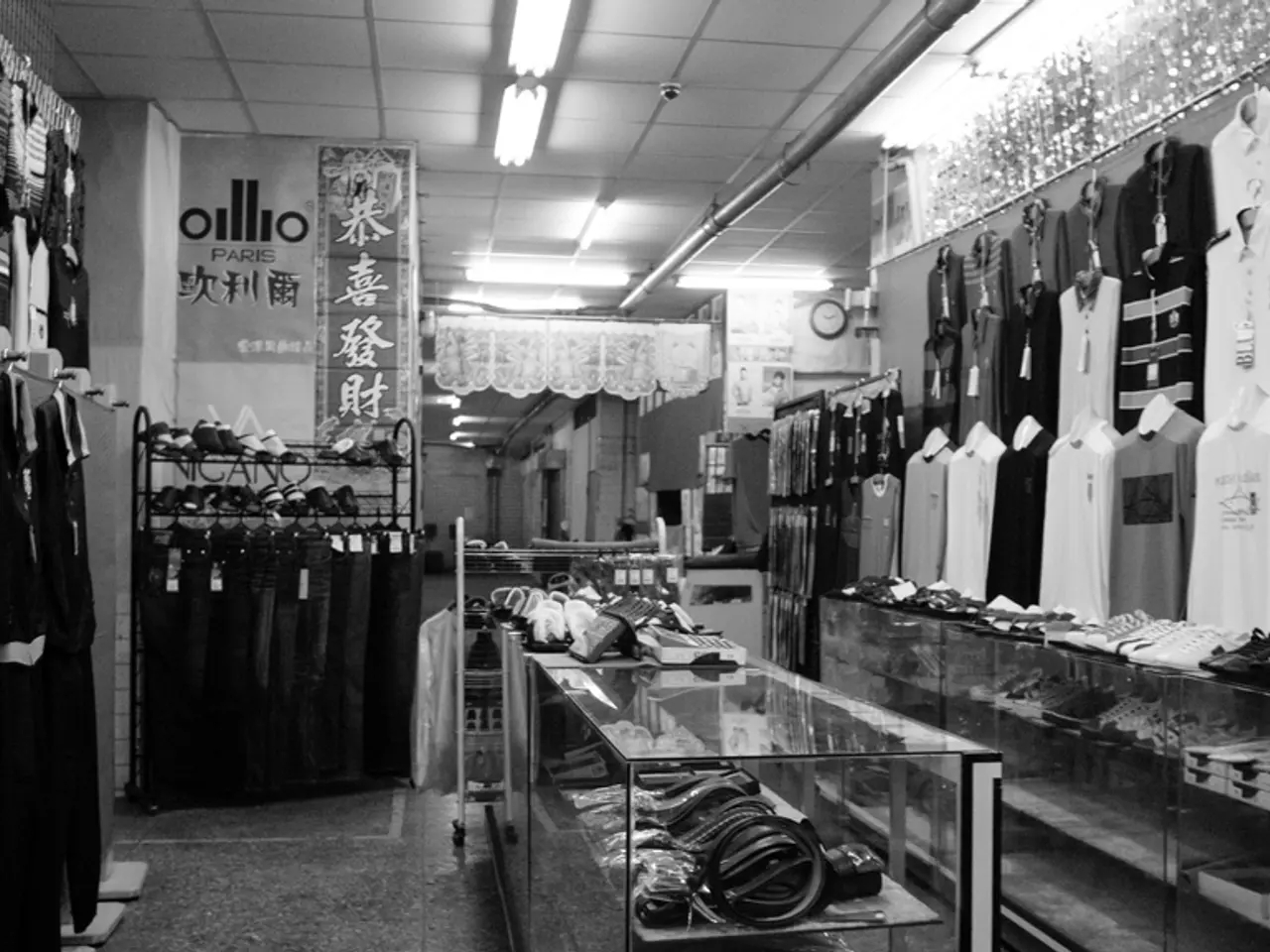Unassessed Sustainability Potentials in Fashion Industry Explored by Kenya Wiley
**Overlooked Fashion-Related Policy Developments: A Call to Action**
In the ever-evolving world of fashion, staying informed about emerging policies is crucial for industry stakeholders. While some of the world's most significant policy initiatives are underway, they may not always receive the attention they deserve, as highlighted by the work of fashion policy expert Kenya Wiley.
**Global and Regional Policy Trends**
One such trend is the EU Strategy for Sustainable and Circular Textiles, which aims to create a sustainable, circular textile system by 2030. The strategy encompasses the EU Circular Economy Action Plan (CEAP) and focuses on resource efficiency, product durability, and recyclability. However, these initiatives may not always be fully recognized or engaged with by all industry players outside Europe.
Similarly, national and subnational legislation, such as packaging reduction and recycling infrastructure acts, can indirectly impact the fashion industry. For instance, the repeated failure of the New York State Assembly to pass the Packaging Reduction and Recycling Infrastructure Act underscores potential future regulatory changes that could shape the fashion sector, but may not yet be fully on the industry’s radar.
**Potential Gaps in Industry Attention**
Comprehensive circular economy laws, cross-sectoral environmental policies, and support for grassroots and social initiatives are among the areas that could be underappreciated within the fashion sector. While the industry is increasingly aware of sustainability, many companies may not be fully preparing for upcoming regulations that mandate circular business models, require life cycle assessments, or impose stricter reporting standards.
**Engaging in the Policy Discourse**
Kenya Wiley, a policy counsel, professor, and advisor focused on fashion law, technology, and social justice, emphasizes the importance of everyday citizens influencing sustainable fashion policy. She suggests attending town hall meetings during the August recess when members of Congress are back in their home states and districts. Key information resources include the 2023 Farm Bill, SEC Climate Disclosures Rule, and The Recycling & Compostability Accountability Act.
When expressing concerns, it is essential to recommend changes tailored to the interests and committees of members of Congress. Kenya also discusses the podcast episode EP79: Sustainable Fashion Policy and Collective Action with Elizabeth Cline, where she delves deeper into the topic.
**Leading the Way**
Europe and California often lead trends in global sustainability legislation, with the country and US government eventually following. Kenya Wiley, who created Georgetown University's first fashion law course in 2019 with a focus on fashion tech, social justice, and sustainability, is at the forefront of this movement.
**A Sustainable Fashion Brand**
This article was sponsored by Osei-Duro, a sustainable fashion brand based in Ghana that uses handmade textile techniques and pays full-time wages for a 4-day work week, offering numerous benefits including full health insurance and maternity coverage. Listeners can get 20% off sitewide at Osei-Duro using the code CONSCIOUSSTYLE20.
For those interested in learning more about fashion policy and justice, Kenya offers a 50% discount on her online course with code JUSTICE50 and an 80% off student discount upon contacting her directly. By staying informed and engaging in the policy discourse, we can collectively contribute to a more sustainable fashion industry.
[1] Source: Sustainable Fashion Policy and Collective Action, Kenya Wiley, EP79, The Sustainable Fashion Collective [2] Source: Sustainable Fashion and Social Justice, Kenya Wiley, The Fashion Law [3] Source: Fashion and the Circular Economy, Ellen MacArthur Foundation [4] Source: Fashion's Role in the Circular Economy, Ellen MacArthur Foundation
- Adopting a conscious style and supporting slow fashion brands can be a significant step toward promoting education and self-development, as these brands often prioritize sustainable and socially responsible practices, aligning with the policy initiatives aimed at creating a circular textile system and fostering a sustainable fashion industry.
- Engaging with policy developments in fashion and beauty, such as comprehensive circular economy laws, cross-sectoral environmental policies, and support for grassroots and social initiatives, can provide valuable insights, helping to shape one's fashion-and-beauty lifestyle and contribute to the collective call to action for a more sustainable fashion sector.
- Lifestyle choices, like advocating for sustainable fashion policy during town hall meetings with members of Congress during the August recess, can influence educational and self-development opportunities, as access to resources like the 2023 Farm Bill, SEC Climate Disclosures Rule, and The Recycling & Compostability Accountability Act can empower citizens to make informed decisions that support a sustainable fashion industry.




